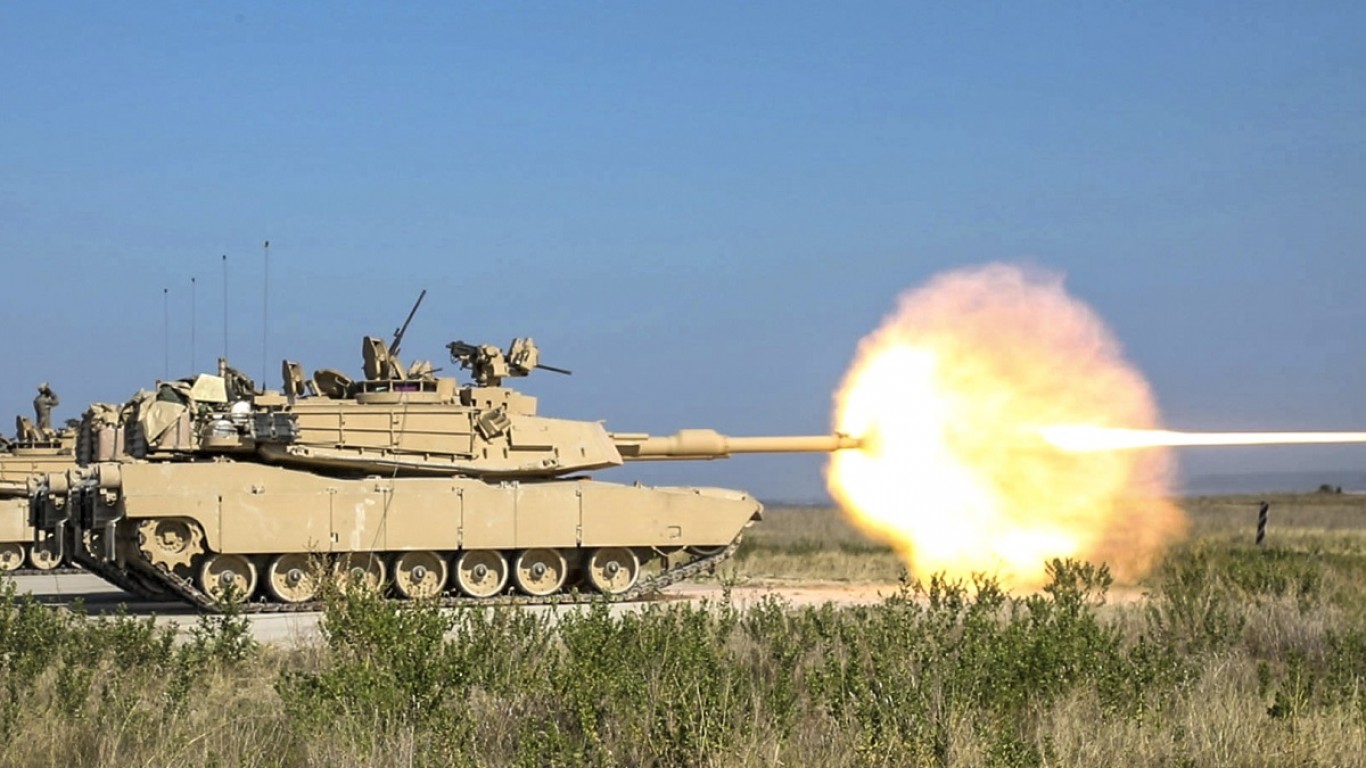
In November 2024, the American people elected Donald Trump as president. Trump is the first Republican candidate to win the popular vote in 20 years and the first president to serve non-consecutive terms since Grover Cleveland. Trump’s transactional view of diplomacy contrasted sharply with Kamala Harris’ wish to continue her predecessor’s work to mend alliances.
The incoming administration wishes to focus on domestic affairs, but Trump will have to contend with several notable geopolitical conflicts. This article will examine some of the most pressing diplomatic issues that lie ahead.
Why This Matters
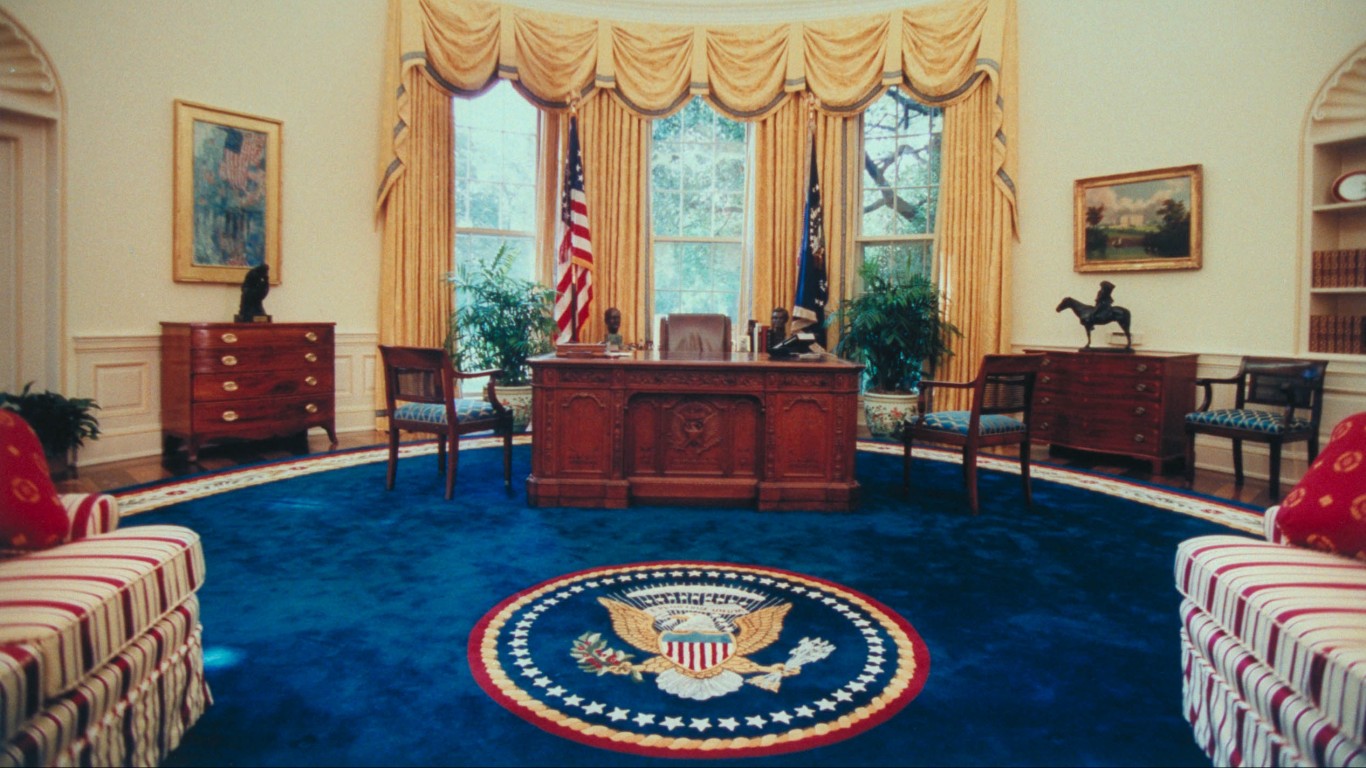
Though Donald Trump views foreign policy more insularly, global stability is rapidly deteriorating. The president-elect ran on his ability to negotiate deals favorable to the United States, and he will certainly have his work cut out for him in the next four years. Naturally, Israel and Ukraine will be his first priorities, but he will also have to address other developing situations.
Ukraine

The ongoing conflict in Ukraine is nearing its third year. Trump’s victory means the flow of military aid to Kyiv is likely to cease. Without that outside support, Ukraine can’t sustain its war effort against Russia. Trump indicated he wants to end the war quickly on the campaign trail, and it may be the case that Ukraine needs to accept a suboptimal deal to bring the war to its conclusion.
The main sticking point will be Ukraine’s wish to join NATO as a safeguard against future Russian aggression. Russia would probably be amenable to a deal that pauses Ukraine’s NATO ascension and territorial concessions along the current frontlines, but this will be a tough sell for Ukraine. In his five-point peace plan, Volodymyr Zelenskyy outlined Ukraine’s ultimate aim to restore its 1991 borders and join the alliance. Another problem will be keeping the peace once hostilities cease. Trump is not interested in stationing American troops in Eastern Europe and has suggested that European allies man a buffer zone between Ukraine and Russia. The two sides will likely ramp up their efforts to secure a stronger bargaining position by the time Trump comes to office.
Israel and Gaza
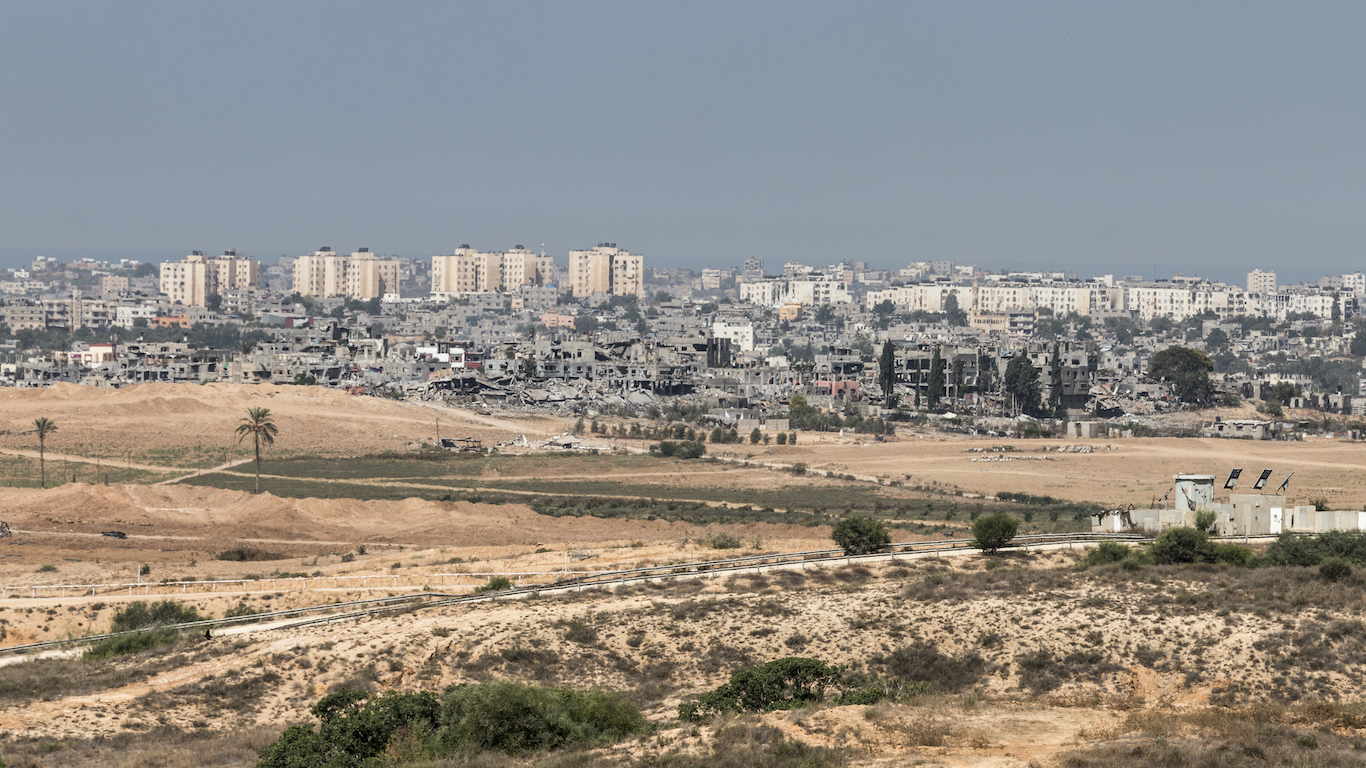
In the war with Hamas and other regional security threats, Israel will not accept anything short of “total victory.” Trump has implored Tel Aviv to “finish the job,” but there are different meanings that can be gleaned from that statement. On the one hand, Trump’s first term and choice of ambassador suggests a continuation of his staunchly pro-Israel stance. On the other, it may also infer a wish for Israel to wrap up the war as soon as possible.
The “ultimate deal” Trump sought in his first term – lasting peace in the Middle East – proved illusive. There’s little to indicate that Trump’s second term will be very different. Long-term stability will only come with the normalization of relations between Israel and Saudi Arabia. With a two-state solution firmly off the table, it’s hard to see where meaningful progress can be made.
Syria
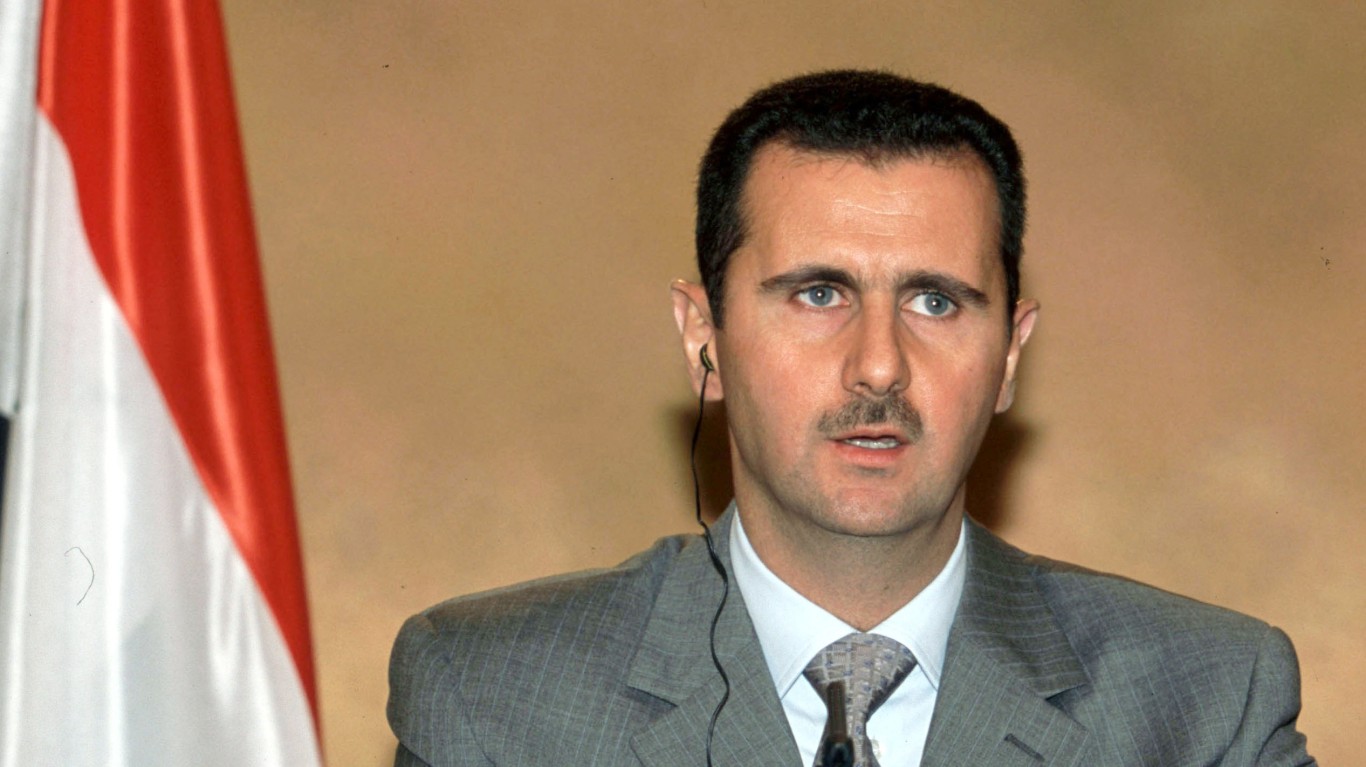
The sudden and dramatic fall of the Assad dynasty after 50 years in power in Syria will have a major impact on the region’s future. The Islamist rebel group Hayat Tahrir al-Sham (HTS) was the main driving force in the bid to oust Assad. HTS is recognized as a terror group by the UN, United States, and Turkey. The outgoing Biden administration is in contact with the group, but the future is uncertain.
Russia has two bases in the area: Khmeimim (air) and Tartus (naval). These bases are crucial to Moscow’s operations in the area and Africa. Tartus is the only friendly port in the Mediterranean, and its loss would be a major blow. Putin has expressed willingness to negotiate with HTS to retain control of those bases.
Donald Trump showed little interest in the Syrian civil war during his first term and appears equally ambivalent ahead of his second term. The president-elect insisted Syria is “not our fight” and shows little inclination to get involved in rebuilding Syria after years of civil war. Trump’s hands-off approach is consistent with his America-first outlook but could see Syria backslide into further conflict.
Democratic Republic of the Congo
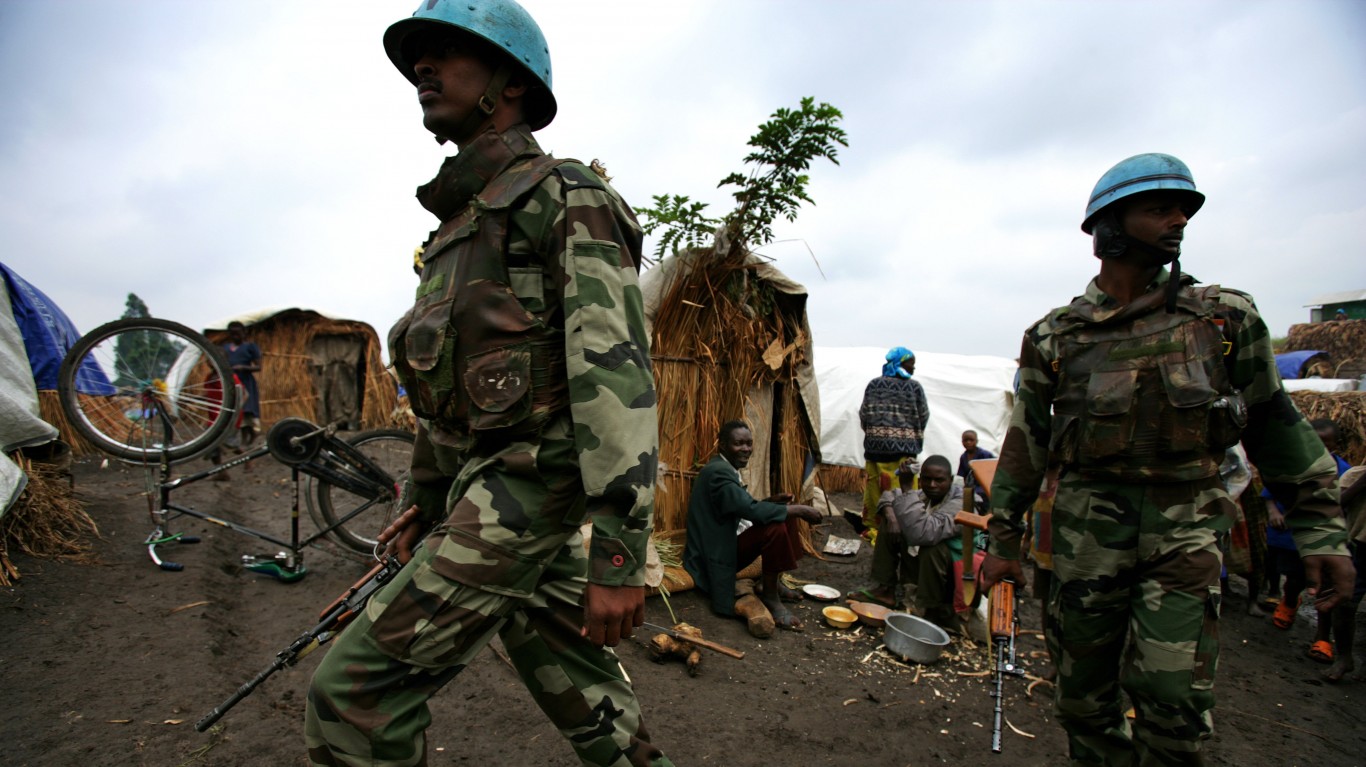
The Democratic Republic of the Congo (DRC) is one of the most troubled nations on Earth. Six million people have died in conflicts in the DRC since 1996. The current situation is fraught with peril in the mineral-rich African nation. Multiple armed factions are vying for control, and the UN peacekeeping mission there has had little success and is preparing to withdraw. Tensions between the DRC and Rwanda are mounting and could spill over into yet another destructive conflict.
Trump spoke very little of Africa on the campaign trail, and there’s little reason to assume he has much interest in the developments unfolding in the DRC. China has substantial commercial interests in the DRC but is hesitant to get involved in the country’s internal problems. Trump’s cabinet includes China hawks Marco Rubio, Mark Waltz, and Elise Stenfanik, who may be more inclined to challenge Chinese influence on the continent.
Iran
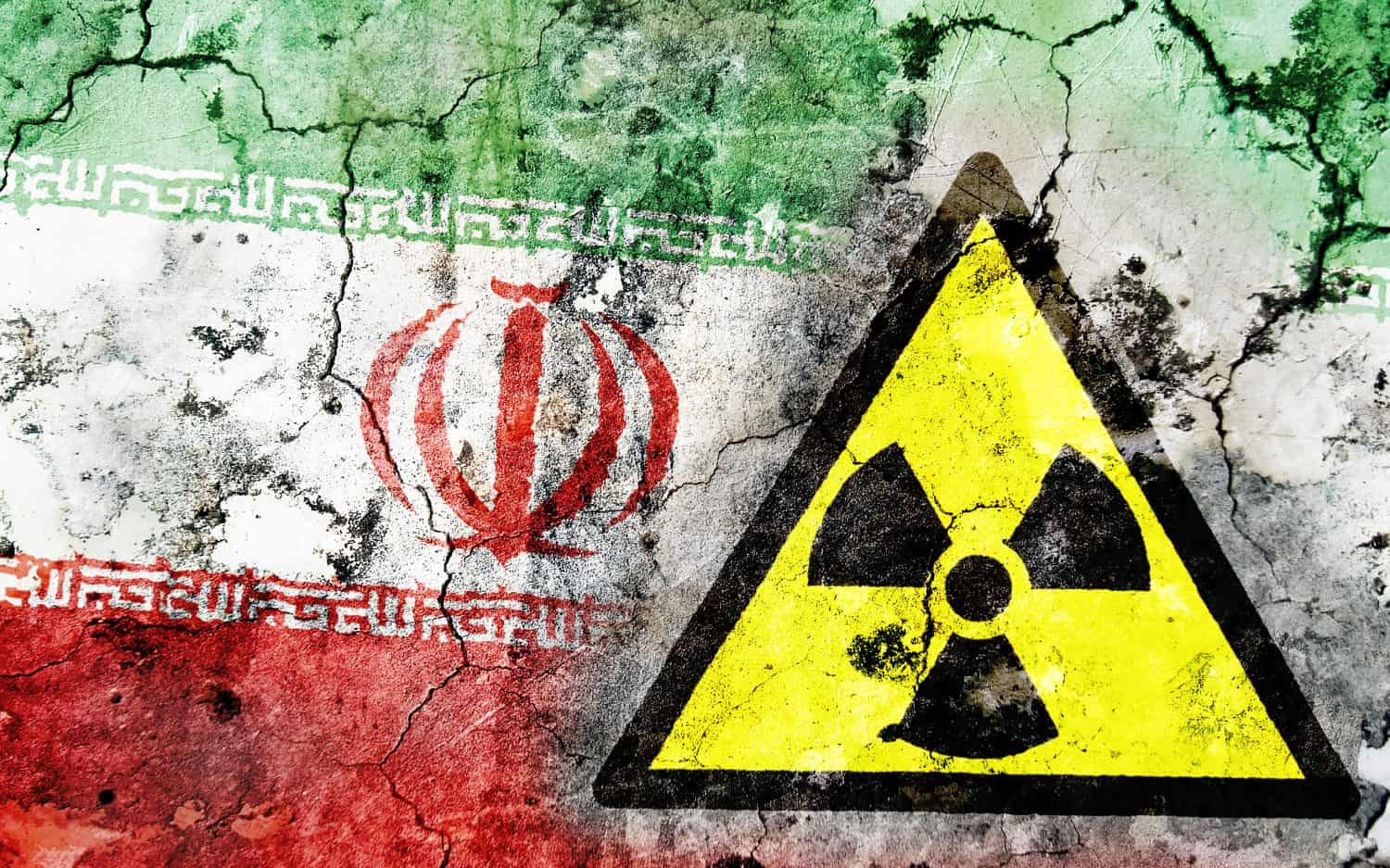
Dealing with Iran and its proxies will be a stiff test for the new administration. His first term damaged already strained relations between Iran and the United States. Trump torpedoed years of diplomatic efforts to curb Iran’s nuclear ambitions in 2018. Supreme Leader Ayatollah Ali Khamenei announced a “no war, no negotiations” policy towards the United States. The assassination of Iranian general Qasem Soleimani in 2020 firmly closed the door on any future negotiations with Tehran.
The Biden administration had little luck attempting to revive the Joint Comprehensive Plan of Action (JCPOA). A Trump return to the White House means the JCPOA is effectively DOA. One of the biggest security concerns is Tehran’s pursuit of nuclear weapons. Israel and the United States have gone to great lengths, including cyber warfare, to sabotage Iran’s nuclear program, but that may only be delaying the inevitable.
Iran’s current president, Masoud Pezeshkian, is a reformer who may be more willing to reach a compromise than his deceased hardline predecessor. Still, the lingering resentment over Soleimani’s assassination, sanctions, and the ongoing war in Gaza will make talks difficult.
Conclusion
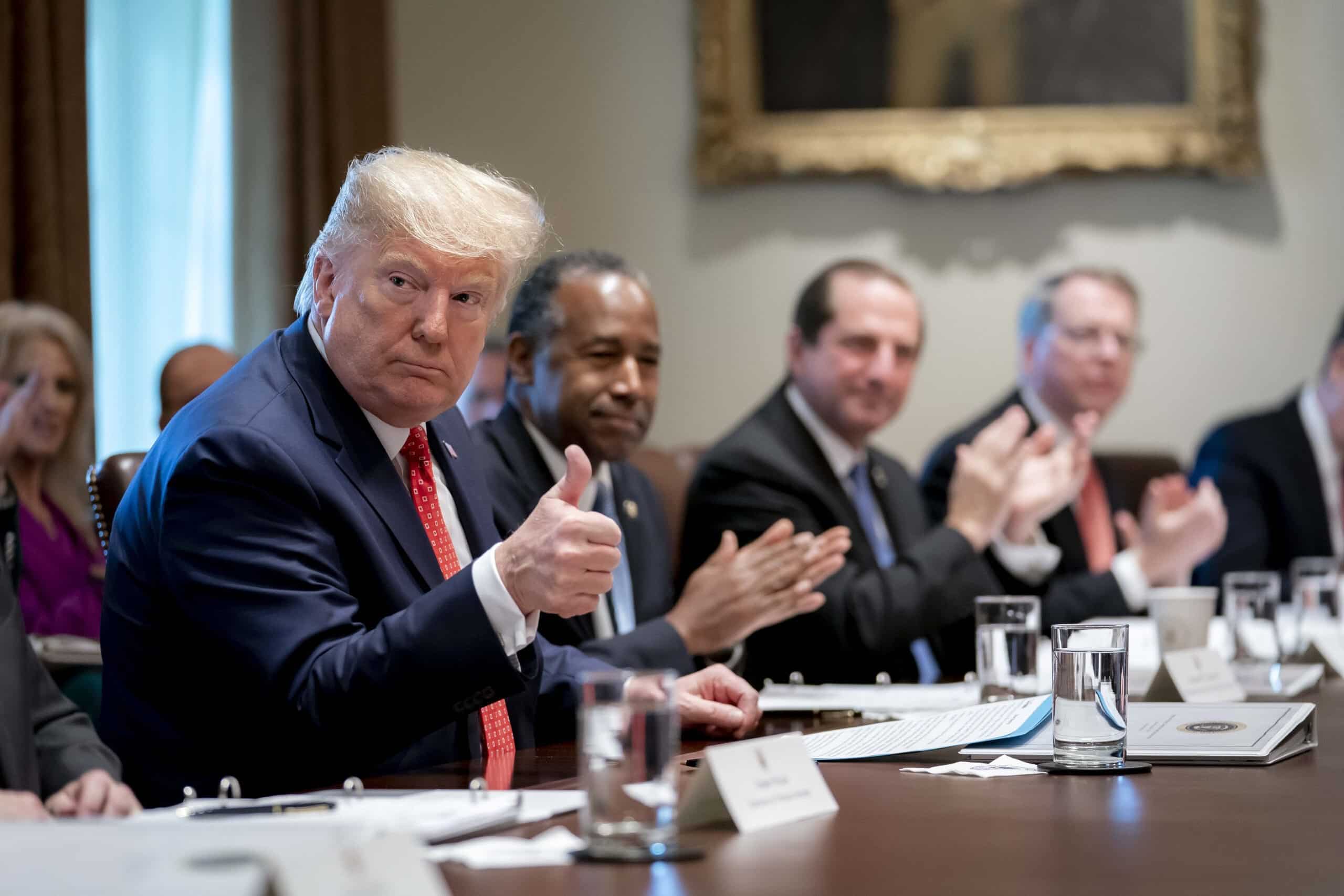
The two most pressing concerns for the president-elect are resolving the conflicts in Ukraine and Gaza, and neither will be easy. The war in Ukraine has raged for three brutal years, and it will be immensely difficult to convince either side to accept the concessions needed for a lasting peace. Ukraine’s first priority runs contrary to one of Russia’s chief aims: NATO membership. Trump’s campaign promises to end the war quickly will be a tall order to keep. Based on the current situation, any deal is unlikely to be in Ukraine’s favor.
It’s no secret that the incoming administration strongly supports Israel, but it remains to be seen how Tel Aviv’s stated goal of “total victory” can realistically be achieved. Trump’s “ultimate deal” of achieving lasting peace in the Middle East won’t be easy.
Syria is a recent development that demonstrates how quickly a seemingly deadlocked conflict can end abruptly. The fall of the Assad regime after a half-century of authoritarian rule will leave a potentially dangerous power vacuum in a key strategic region. Damascus is sometimes called the “beating heart” of the Arab world, but the Trump regime doesn’t appear to have its finger on the pulse. Similarly, Trump’s lack of interest in Africa could further reduce the waning US influence over the continent. Finally, Iran may be a case in which Trump’s past actions come back to haunt him. Withdrawing from the JCPOA and assassinating an Iranian general will reduce his diplomatic options and leave some tough choices ahead.
Take Charge of Your Retirement In Just A Few Minutes (Sponsor)
Retirement planning doesn’t have to feel overwhelming. The key is finding expert guidance—and SmartAsset’s simple quiz makes it easier than ever for you to connect with a vetted financial advisor.
Here’s how it works:
- Answer a Few Simple Questions. Tell us a bit about your goals and preferences—it only takes a few minutes!
- Get Matched with Vetted Advisors Our smart tool matches you with up to three pre-screened, vetted advisors who serve your area and are held to a fiduciary standard to act in your best interests. Click here to begin
- Choose Your Fit Review their profiles, schedule an introductory call (or meet in person), and select the advisor who feel is right for you.
Why wait? Start building the retirement you’ve always dreamed of. Click here to get started today!
Thank you for reading! Have some feedback for us?
Contact the 24/7 Wall St. editorial team.
